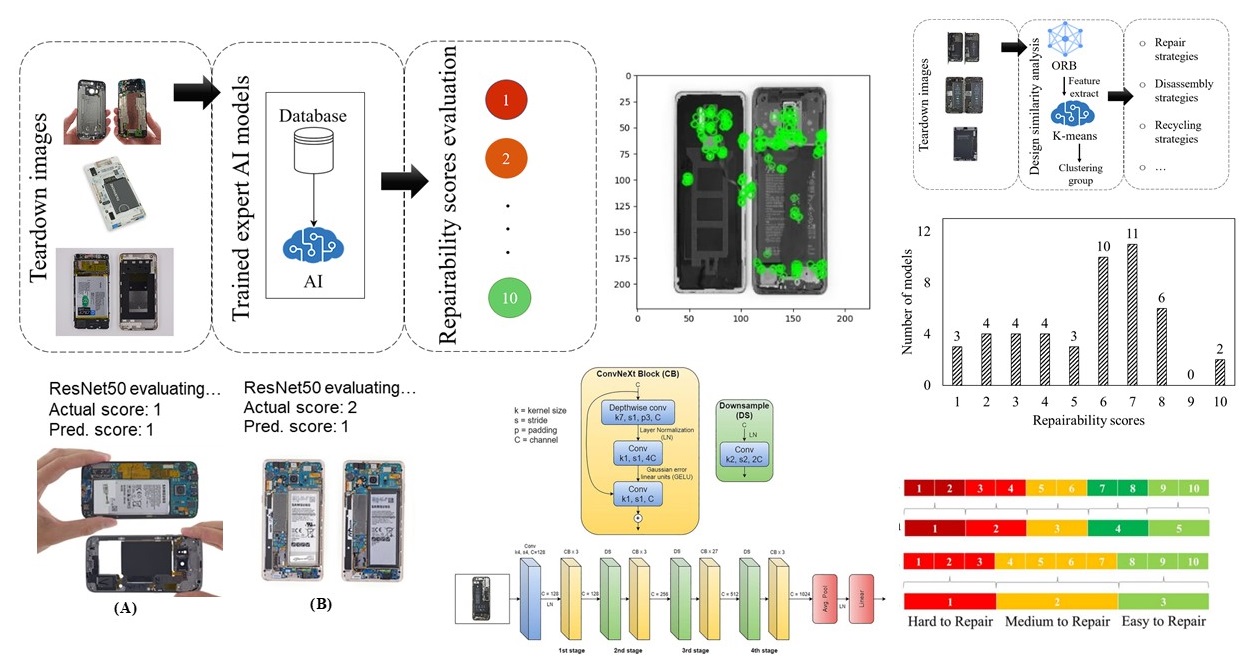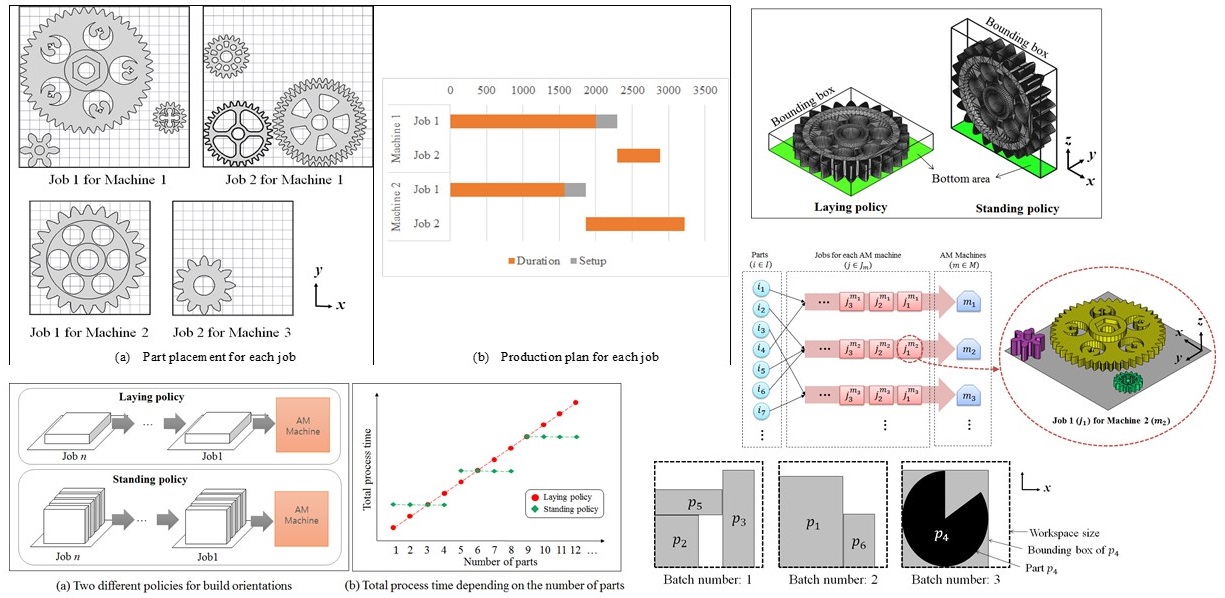Automated Evaluation and Rating of Product Repairability
The research project aims to improve the assessment of product repairability, especially in consumer electronics. Current methods for evaluating and grading repairability are limited, which affects designers, remanufacturers, original equipment manufacturers (OEMs), and repair shops. This project develops artificial intelligence approaches to address these limitations by investigating both supervised and unsupervised machine learning models. Supervised learning uses object detection on product teardown images to assess repairability. This approach provides an automated assessment of repairability based on visual analysis of product images. Also, the project develops an unsupervised Learning framework based on design similarity analysis. It combines feature extraction and cluster learning to identify product design features and group devices with similar designs. The project shows the potential of AI to develop an automated system for assessing and rating product repairability specifically, and product sustainability metrics in general.

Design for Assembly: Decomposing and Packing of Large Parts for Additive Manufacturing
The project creates a multi-phase framework for producing large objects within the limited workspace of an Additive Manufacturing (AM) machine. It consists of part decomposition algorithms to separate a large part into smaller pieces and 2D batch placement to organize these pieces onto multiple batches for the AM process. The project uses Binary Space Partitioning (BSP) methods with a hyperplane to recursively decompose the object until all pieces fit within the AM machine’s workspace. Then, computational algorithms such as genetic algorithm (GA) are developed for 2D batch placement to determine near-optimal solutions for the orientation, position, and batch number for each decomposed part. The objective is to minimize the total process time in additive manufacturing, including both the build and post-processing stages.

Design for Additive Manufacturing and Mass Customization
The project develops production planning and design algorithms suitable for additive manufacturing (AM) to make AM appropriate for mass customization demands. The key objectives include the reduction of cycle time and the optimization of the AM process for mass production. To achieve these objectives, the project develops heuristic algorithms for decision-making in three main areas: determination of build orientation to minimize part height or tray projection area; 2D packing of parts within the constrained workspace of AM machines; and scheduling of part production for multiple AM machines for minimum production time. The methodologies developed in this project provide scalable solutions to address the limitations of AM machine workspace size while optimizing the manufacturing process for a variety of parts.
